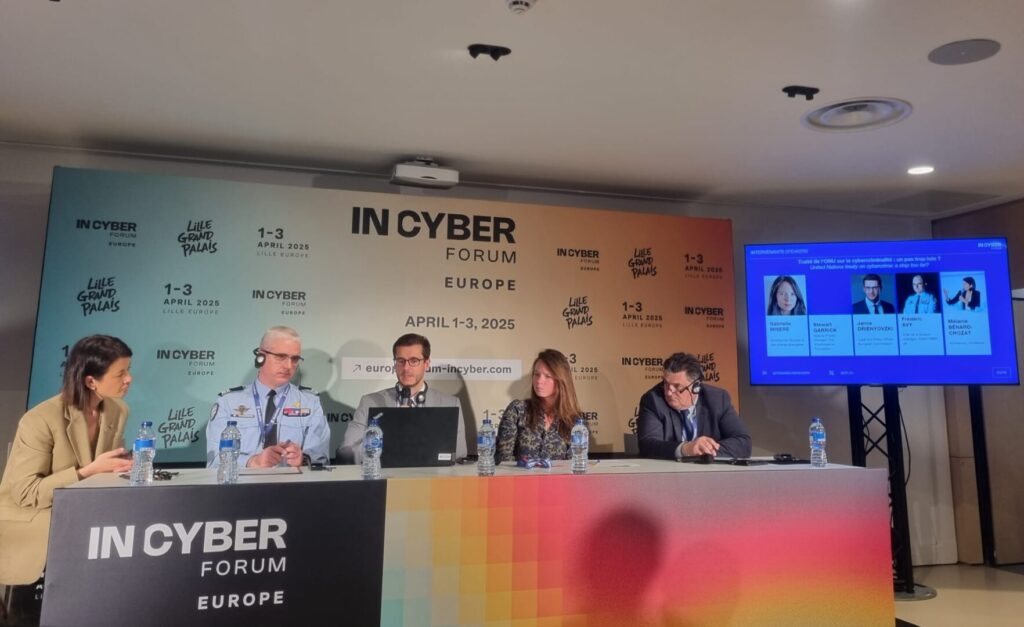
During the InCyber Forum in Lille, EITHOS took the opportunity to attend several conferences led by cyberspace experts, military officers, and representatives from EU agencies. One session that particularly stood out featured Gabrielle Miséré. from France’s Ministry of Europe and Foreign Affairs, law enforcement officer Stewart Garrick, EC policy officer Janos Drienvosky, and Colonel Frédéric Avy. The panel discussed “The UN’s Latest Treaty on Cybercrime: A Step Too Far?”
After two years of intense negotiations, the United Nations Convention against Cybercrime was unanimously adopted by the General Assembly on December 24, 2024, through resolution 79/243 in New York. This treaty marks the first binding global agreement on cybercrime among UN member states. The speakers expressed satisfaction with this long-awaited pact, highlighting its milestones, the challenges faced during negotiations, and the broader implications of the convention.
Although this is the first international agreement with mandatory provisions on cybercrime, Mrs. Miséré noted that it builds extensively on the Budapest Convention, which was signed in 2001, came into force in 2004, and now includes 80 countries. With 67% of the world’s population having internet access in 2023, all 193 UN member states now acknowledge the growing threat posed by cybercrime. In such a context, international law must unite countries and require them to prevent cross-border cyberthreats.
The aim of this treaty is to prevent authoritarian tendencies in cyberspace and promote a more peaceful, multilateral digital environment. The convention establishes a clear legal framework for international cooperation, especially in the exchange of electronic evidence and judicial collaboration. Policy officer Drienvosky emphasized its importance in fostering a common understanding of cybercrime and enhancing global enforcement capacities, particularly for countries with limited technical resources.
Key challenges addressed by the treaty include the spread of intimate images online, money laundering via cryptocurrencies, and online child exploitation. Colonel Avy stressed the necessity of rapid data preservation to facilitate effective judicial cooperation and praised the convention’s role in defining core cyber offenses more precisely. He also highlighted the impact of new technologies, such as artificial intelligence, which have increased both the scale and sophistication of cyberattacks. For example, AI is now used to create and disseminate pornographic content, including through voice-morphing techniques-tools that, while dangerous, are also being leveraged by law enforcement.
On the financial front, crypto assets have become powerful tools for money laundering. However, some challenges remain fundamentally political.
While the convention represents a significant and long-awaited achievement, its true impact will depend on effective implementation. To that end, participating states are committed to ensuring the treaty is not politically exploited. A conference of member states is already planned to oversee its implementation, with the UN office in Vienna playing a central role in coordinating support for states. The formal signing ceremony will take place in Hanoi, Vietnam, in July 2025, after which the treaty will be open for signature at the United Nations Headquarters in New York until December 31, 2026. This treaty is essential in the fight against cybercrime, which increased by 75% in the third quarter of 2024. It offers a common foundation for international cooperation but must remain balanced to avoid becoming a tool of abusive surveillance. The core objective is to ensure the convention remains democratic, inclusive, and transparent.
Arnaud Couture, PSC-Europe
